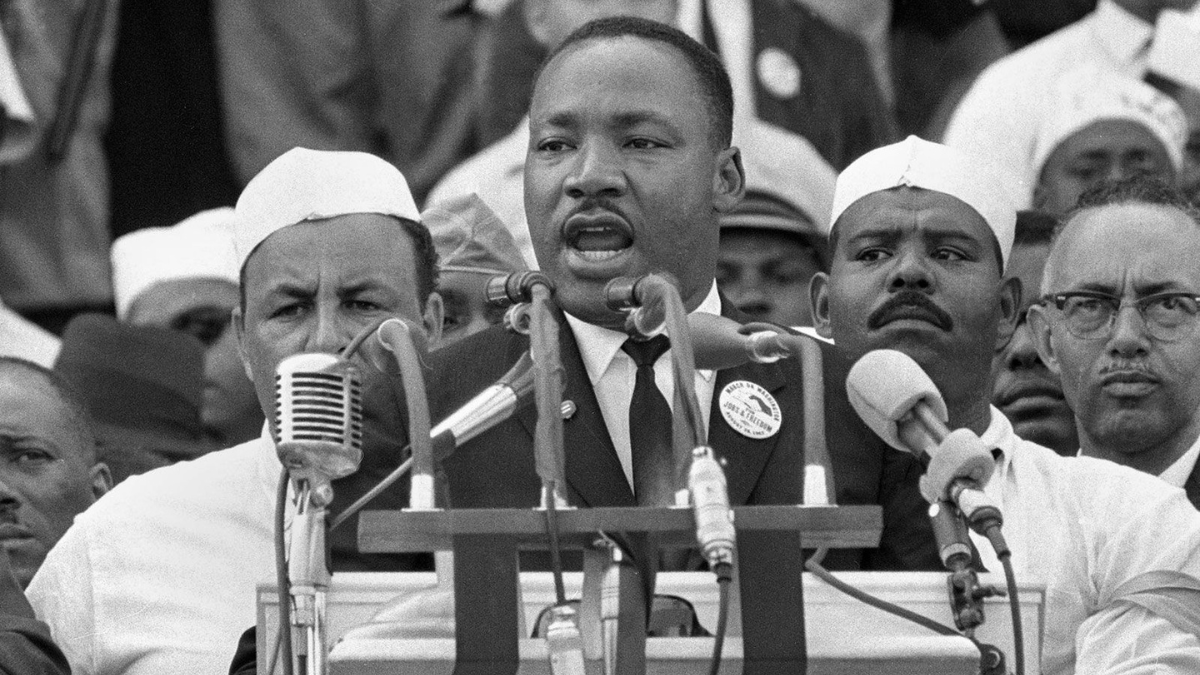

Chuck Colson on MLK’s Dream Speech
Standing on the shoulders of faith giants, King recognized that only the Christian worldview has the answer to human rights and the moral law.
08/28/23
John Stonestreet Chuck Colson

Sixty years ago today, the Reverend Martin Luther King Jr. delivered his “I Have a Dream” Speech from the steps of the Lincoln Memorial on the National Mall in Washington, D.C.
The most well-known line of King’s speech is this one: “I have a dream that my four little children will one day live in a nation where they will not be judged by the color of their skin but by the content of their character.” That vision has never been fully realized, and its greatest threat today is a set of ideas that purport to advance racial justice but instead oppose it. Critical Race Theory and the critical theory mood that infects so many areas of our culture, especially education and media, are all about issuing judgments about the character of entire groups of people based solely upon the color of their skin.
Twenty years ago, in a commentary about this historic speech, Chuck Colson articulated why only the Christian vision of the human person can ground an understanding of human rights, universal human dignity, and value that extend to everyone. Recently, the world has learned disturbing details about King’s character and moral failures. Colson’s analysis of King’s ideas, and his call to Christians to live out of a Christian worldview, remain true and relevant today.
More than forty years ago, on August 28, 1963, a quarter million people gathered in front of the Lincoln Memorial. They marched here for the cause of civil rights. And that day they heard Martin Luther King Jr. deliver his famous “I Have a Dream” speech, a speech in which he challenged America to fulfill her promise.
“I have a dream,” he said, “that one day this nation will rise up and live out the true meaning of its creed. ‘We hold these truths to be self-evident that all men are created equal.’”
While we know of the speech, most people are unaware that King also penned one of the most eloquent defenses of the moral law: the law that formed the basis for his speech, for the civil rights movement, and for all of the law, for that matter.
In the spring of 1963, King was arrested for leading a series of massive non-violent protests against the segregated lunch counters and discriminatory hiring practices rampant in Birmingham, Alabama. While in jail, King received a letter from eight Alabama ministers. They agreed with his goals, but they thought that he should call off the demonstrations and obey the law.
King explained why he disagreed in his famous “Letter From a Birmingham Jail”: “One might well ask,” he wrote, “how can you advocate breaking some laws and obeying others?” The answer “is found in the fact that there are two kinds of laws: just laws … and unjust laws. One has not only a legal but a moral responsibility to obey just laws,” King said, “but conversely, one has a moral responsibility to disobey unjust laws.”
How does one determine whether the law is just or unjust? A just law, King wrote, “squares with the moral law or the law of God. An unjust law … is out of harmony with the moral law.”
Then King quoted Saint Augustine: “An unjust law is no law at all.” He quoted Thomas Aquinas: “An unjust law is a human law not rooted in eternal or natural law.”
This is the great issue today in the public square: Is the law rooted in truth? Is it transcendent, immutable, and morally binding? Or is it, as liberal interpreters argue, simply whatever courts say it is? Do we discover the law, or do we create it?
Many think of King as a liberal firebrand, waging war on traditional values. Nothing could be further from the truth. King was a great conservative on this central issue, and he stood on the shoulders of Augustine and Aquinas, striving to restore our heritage of justice rooted in the law of God.
Were he alive today, I believe he’d be in the vanguard of the pro-life movement. I also believe that he would be horrified at the way in which out-of-control courts have trampled down the moral truths he advocated.
From the time of Emperor Nero, who declared Christianity illegal, to the days of the American slave trade, from the civil rights struggle of the sixties to our current battles against abortion, euthanasia, cloning, and same-sex “marriage,” Christians have always maintained exactly what King maintained.
That was Chuck Colson, reflecting on the ideas that shaped Dr. King’s “I Have a Dream” speech, given 60 years ago in Washington, D.C.
For more resources to live like a Christian in this cultural moment, go to breakpoint.org.
Have a Follow-up Question?
Up
Next

Related Content

© Copyright 2020, All Rights Reserved.













